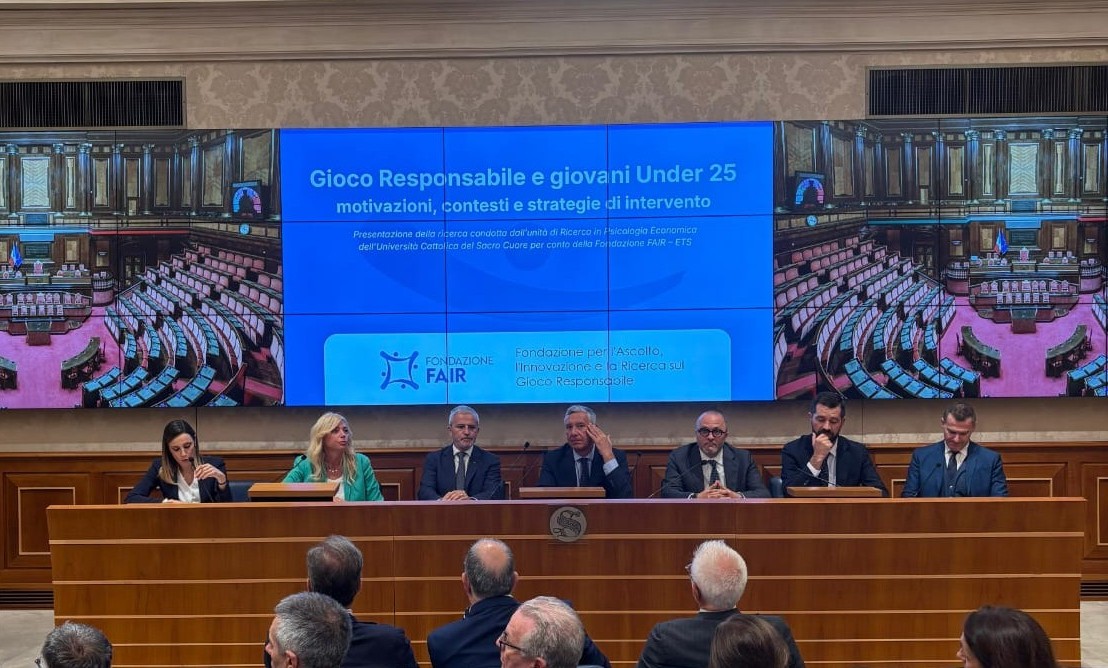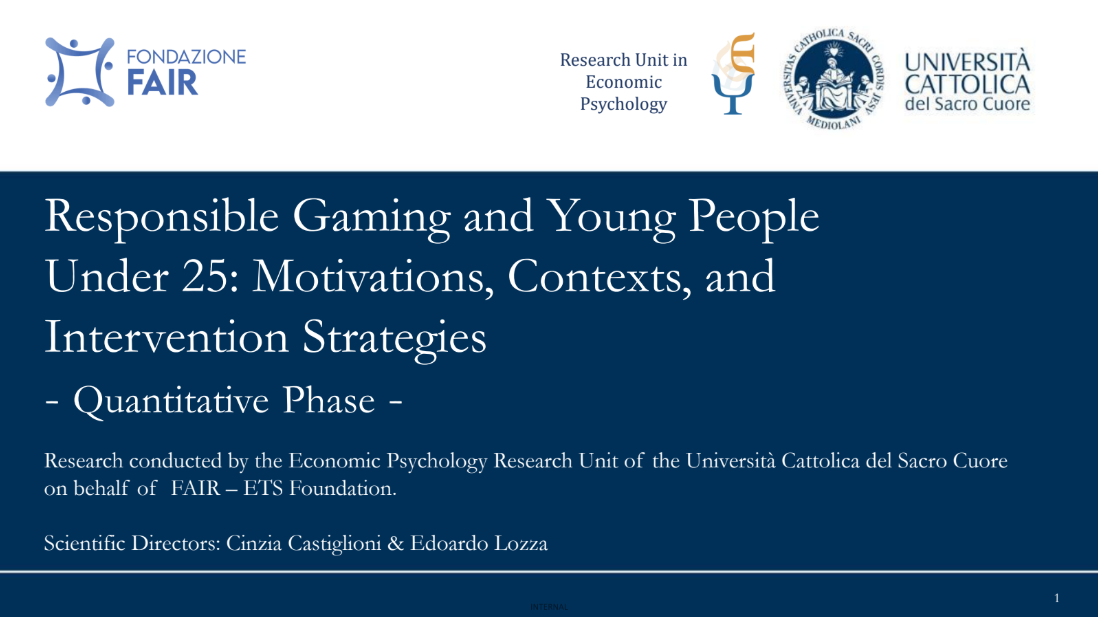Only half of young people are familiar with the concept of "responsible gaming": greater protection for players under 25 is needed
The FAIR Foundation presented the results of the research conducted by the Economic Psychology Research Unit of the Università Cattolica del Sacro Cuore to the Senate, before institutions, experts, and academia.
Only half of gamblers under 25 (51%) say they are familiar with the concept of "responsible gaming," which in a third of cases (33%) is perceived as useless or ineffective. This is even more significant when it comes to gambling limits: only 18% of gamblers under 25 say they set specific gambling limits. These numbers highlight a lack of awareness of prevention and protection tools, calling for more decisive action to promote a culture of responsible gaming.
This is the key finding of the research entitled “Responsible Gambling and Young People Under 25: Motivations, Contexts and Intervention Strategies”, carried out by the Research Unit in Economic Psychology of the Università Cattolica del Sacro Cuore and promoted by Fondazione FAIR. The study provides a snapshot of gambling with monetary winnings among the under-25 age group, exploring their habits, experiences, and motivations.
According to the study, 1.9 million young Italians between the ages of 18 and 25, 41% of this population, said they had gambled or bet money at least once in the last three months.
The phenomenon is not confined to particular social groups or geographical areas, but rather cuts across the youth population. What most differentiates those who gamble from those who don't are their attitudes and the way young people interpret money and risk.
The most popular game is online (52%), appreciated for its immediacy and discretion, but physical gaming has not disappeared, as it is recognized as an opportunity for socializing and gathering by 24% of those interviewed.
The relationship with money also plays a central role. While young people are aware of the risks associated with "playing to win," they also attribute a strong symbolic value to money, associated both with the hope of financial redemption and the adrenaline rush of the stakes.

"Research data shows that current protection tools are still perceived as obscure, especially among younger people," says Matteo Caroli, President of the FAIR Foundation. "Therefore, greater commitment and more decisive action are needed to promote a culture of responsible gaming and ensure prevention and greater transparency for consumers. In this process, the FAIR Foundation aims to be a key player, fostering dialogue between the parties and jointly developing concrete solutions that promote transparency, safety, and player protection."
"It is necessary to listen to the younger generations, recognize their needs, offer concrete solutions to protect them from risky behaviors, and promote a more attentive and aware culture of their well-being," said Senator Elena Murelli, Chair of the Senate Social Affairs Committee, who introduced the meeting. I congratulate the Fair Foundation for its role in establishing new standards for the prevention of pathological gambling and the protection of players.
"The phenomenon of gambling among young people," observe the research's scientific directors, Cinzia Castiglioni and Edoardo Lozza, "is complex and cannot be addressed with generic messages or superficial interventions. We need to develop more targeted prevention and awareness strategies that speak the language of young people and address the real-world contexts in which they live. At the same time, it is essential to adopt a new paradigm, based on greater awareness and a more concrete assumption of responsibility by those involved in the sector."
The research "Responsible Gaming and Young People Under 25: Motivations, Contexts, and Intervention Strategies" can be downloaded from website: 
Sign up for our newsletter and keep up to date with Fondazione FAIR
